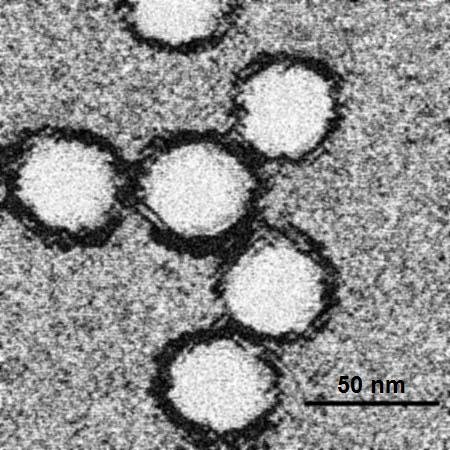We're open daily! View holiday hours
Science News
Species Loss and Human Health
December 1, 2010

The loss of a species, from beneficial bacteria to charismatic mammals, can be devastating to the planet, and, according to a new study in Nature, harmful to human health.
A group of scientists who study biodiversity and infectious diseases, reviewed several dozen research papers published in the last five years and found a link between biodiversity loss and an increase in transmittable disease. Specifically, they discovered that species losses in ecosystems from forests to fields results in increased pathogens in the system.
The pattern holds true for various types of pathogens—viruses, bacteria, fungi—and for many types of hosts, whether humans, other animals, or plants. The researchers found two familiar human diseases that fit this pattern—West Nile virus and Lyme disease.
Sadly, the animals, plants, and microbes most likely to disappear as biodiversity is lost are often those that buffer infectious disease transmission. Those that remain tend to be species that magnify the transmission of infectious diseases.
In one example, three different studies found strong links between low bird diversity and increased occurrence of West Nile encephalitis in the United States. Ecosystems with low bird diversity contained bird species more susceptible to the virus; thus increasing infection rates in mosquitoes and people. In comparison, ecosystems that contained a higher diversity of birds had many species that were unfit as hosts for the virus.
The authors are hoping these results will spur action. For humans and other species to remain healthy, it will take more than a village—we need an entire planet, the scientists say, one with its diversity thriving.
Global biodiversity has declined at an unprecedented pace since the 1950s. Current extinction rates are estimated at 100 to 1,000 times higher than in past epochs, and are projected to increase at least a thousand times more in the next 50 years.
"When a clinical trial of a drug shows that it works," says lead author Felicia Keesing of Bard College, "the trial is halted so the drug can be made available. In a similar way, the protective effect of biodiversity is clear enough that we need to implement policies to preserve it now."
Image of West Nile virus by PhD Dre/Wikipedia